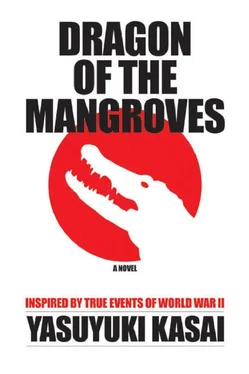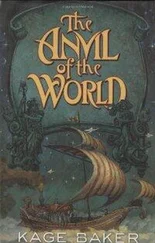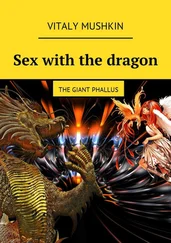He lay back on the wooden floor, which gave off a faint fragrance of incense.
Through the slats of a wooden blind, he could see an elegant pagoda shining against the backdrop of grand roofs. Suddenly, he felt it might be the last time in his life to sleep under a roof.
Severities of the southern front, especially the Burma area, were well-known among soldiers. Everybody told to go there resigned himself to the fate and assumed he already had one foot in the grave. Sumi also worried about the likelihood of his survival, because he had left Yukiko, the woman he loved, behind in Kyoto.
When the Army had drafted him nearly two years before, he had just become a lecturer of the very university where the two had met and fallen in love. But for the war, he should have devoted himself there to studying and lecturing ancient history.
No sooner had he gotten the job he wanted than the Red Paper came. He had anticipated it to some extent, thinking about the deteriorating war situation. But when he had actually gotten it, his whole body had involuntarily trembled with desperation. He could remember that feeling as if it was yesterday.
Conscripted mercilessly, he had come such a long way to Burma. He knew he must cut this absurd war short to get a return ticket to the university as soon as possible, by fair means or foul. He must see Yukiko again.
During his send-off party, embellished by meaningless grandiose words, she held his cuff and whispered in his ear softly. “Don’t kill any. And don’t be killed.
I wait for you here. Come back alive.” He knew nobody in that fascist country who could say such a kind thing but her. If nothing changed, she could continue her job in their university as a researcher in sociology course. He had decided to propose to her.
She would say yes, of course. She was the daughter of a wealthy man. Sumi had been no more than a fledging scholar. Considering that gap, he had hesitated. But now he had gotten a job as a lecturer at the university. Besides, he had become an officer of the Imperial Army. The reputation would remain even if he were demobilized. Her parents would give the nod. Delight filled his mind every time he thought of Yukiko.
But everything was based on his safe return. He must avoid injuries or diseases, let alone being killed in action, unnoticed in an unknown jungle.
Sumi remembered he had just boarded a transport ship departing from Ujina Port, Hiroshima, when he had heard, “Heavens of Java and hells of Burma.” The environment had surely turned out that way. All were hells: Imphal, Kohima, Myitkyina, and Yunnan. And now Arakan was about to be added to the list.
But he defied the pessimism. What on earth did it matter? He had a sweet-heart waiting for him. He must survive. His thought ended with resolution.
While in the priest’s cell, Sumi heard sutra-chanting voices. Apparently the monks had started an afternoon service. Sumi stretched out on the floor, shaking off the ominous premonition. He couldn’t relax anymore, confronted with the difficult duty that was next. But soon, both mental and physical fatigue sent him into a deep sleep.
2

A morning breeze passed over the treetops and the creek. It blew gracefully under the blue sky. The spire of a pagoda protruding from the woods on the opposite bank was shining, reflecting the sun. But a queer smell drifted around. It was a very nasty one, quite unfit for the refreshing scenery. It was the second time for Superior Private Minoru Kasuga to catch this stench, like a mixture of mud and putrid flesh.
An incident had happened about ten days before. One soldier had gotten lost during his sentry duty at Minbyin Coast, northwestern Ramree Island, where Kasuga and his fellow machine gunners had stationed together with Sixth Company men of Second Battalion, 121st Infantry Regiment. Since the latter half of the previous year, locals had often vanished abruptly. A rumor was going around that some of those missing locals had contacted enemy intelligence in the continent and had already sneaked back into the island as British spies.
But the missing soldier had been found safe two days later. It was reported that he had lost his way while strolling around. This soldier had been wandering in a nearby jungle until an officer had finally found him and delivered a stern reprimand. Even though the case was closed, the whole Sixth Company was worried by this incident because they had suspected that British-Indianforces might have abducted that soldier. Kasuga himself had also been drafted into a search party.
Machine Gun Fifth Platoon, to which Kasuga belonged, went all the way to Madegyun Creek, the northeastern coastline of the island, and searched there a whole day. Minbyin Coast was hemmed by sunny sand beaches facing the Indian Ocean. But the northeast coast was almost covered with dense mangroves.
When Kasuga approached a creek nearby a village called Myinde, a stench bad enough to curl nostrils was in the air. He remembered wanting to vomit.
In Arakan, a village headman was called “rudgi.” Obsessed by the strange stench, Kasuga questioned the rudgi as soon as the platoon entered the Myinde dwelling area. The rudgi puffed on a huge cigar while Kasuga talked. Then he straightened his back and answered seriously. “That’s a crocodile without fail,” the rudgi said. “The exhaled air of a man-eater stinks terribly.”
Then he added, “Sadly, one of our men hasn’t come back since he went shrimping. A crocodile might have gotten him. Probably the bad croc had been somewhere in the creek when you Japan-Masters came closer. That’s why you caught a bad smell.”
Kasuga was dumbfounded. He couldn’t believe a rudgi would insist such a thing sanely and wondered what kind of people those Burmese were. Kasuga didn’t completely disbelieve the authenticity of crocodiles’ stench, but he couldn’t figure out what made them think it proved man-eating so easily. He thought it was ridiculous.
Enemy planes had been rampant since the beginning of that year. As soon as they saw moving figures, those pilots strafed everything there mercilessly. The possibility of an enemy counteroffensive was getting stronger day by day. It was no wonder that many locals were missing. At least, Kasuga thought, the shrimping villager had evacuated himself somewhere to avoid the evils of war. The locals surely had many place to hide to save their lives, unlike Japanese soldiers.
They had come to Myinde as a search party, and the priority was to get clues to the whereabouts of the missing soldier. There wasn’t enough time for a talk with the rudgi about trifling. There was even less time for a chat by a rank-and-file about crocodiles’ stench. The troop soon departed there, while Kasuga still harbored a doubt.
But he had time at present, and it was a good chance to determine the cause of the stench.
His squad was detached from Machine Gun Company and kept on antiair-
craft defense duty in Hill 353, where the main body of Sixth Company stayed. A freshwater stream, precious on the island, ran by the eastern hillside. Just before it joined with a saltwater creek, the stream made a little falls in the woods. Kasuga came here alone on duty to fetch water, and all the canteens were filled.
He knew Second Lieutenant Jinno, their hysterically fault-finding platoon commander, hadn’t been around since the previous night. On the other hand, Sergeant Keiichi Tomita, the squad leader, was friendly and kind to Kasuga, since the two had come from the same province. Even if he should come back a little late, Tomita wouldn’t tell him off much.
It was very valuable leisure time for a soldier who couldn’t have even one minute of solitary do-as-you-please time. So he came out of the woods and walked to the waterside to enjoy a stroll.
Читать дальше













